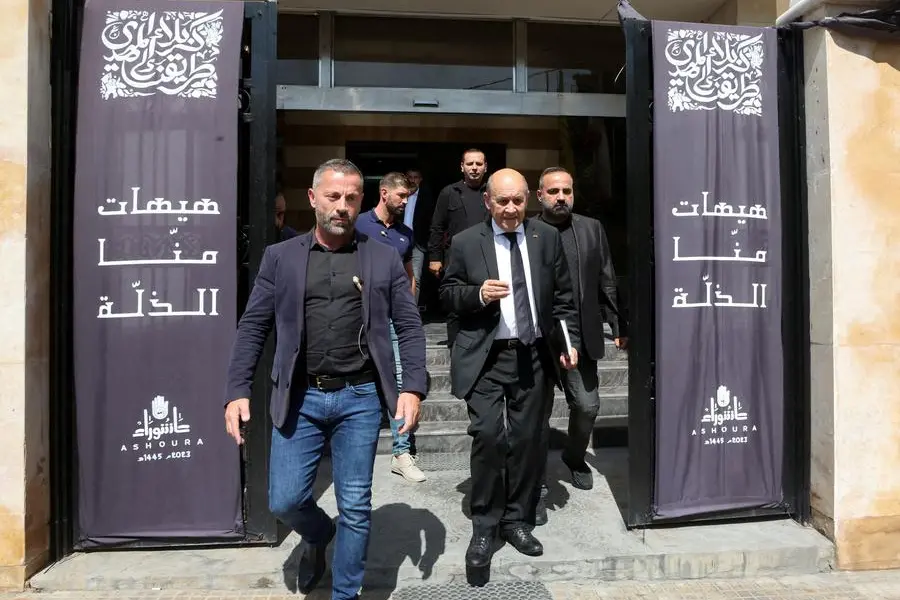PHOTO
Lebanon risks being "ostracised" by the international community if its nearly year-long presidential vacuum drags on further, France's special envoy Jean-Yves Le Drian told a local Lebanese newspaper in an interview published on Tuesday.
Lebanon has been without a president since the term of former head of state Michel Aoun ended last October. The current parliament, one of the country's most deeply divided, has failed 12 times to elect a successor, with the last session in June.
Le Drian told Lebanese daily L'Orient-Le Jour that he was planning to host a series of "consultations" among political actors and that he hoped Speaker of Parliament Nabih would then begin convening parliament "for consecutive and open sessions".
"I hope that the actors are aware that a way out must be found; otherwise, they will be ostracised by the international community. No one will want to see them anymore, and it will be unnecessary to seek support here or there," Le Drian said.
The failure to elect a president has deepened sectarian tensions in Lebanon, already mired in one of the world's worst economic crises and facing unprecedented political paralysis, with its cabinet only partially empowered.
Lebanon has failed to enact reforms required to gain access to $3 billion in funding from the International Monetary Fund. The IMF has blamed "vested interests" for the lack of progress.
Donor countries have stepped in to help fund various public services but have grown increasingly frustrated with Lebanon's requests for more funding.
Le Drian on Tuesday said five key countries - the United States, France, Qatar, Saudi Arabia and Egypt - who had been coordinating on policies to help Lebanon out of its political impasse were beginning to reconsider assistance.
"The five are wondering how long they will continue to help Lebanon," he said.
The five had already discussed possible measures against politicians and groups who were obstructing the election of a president.
(Reporting by Maya Gebeily; Editing by Alex Richardson)



















